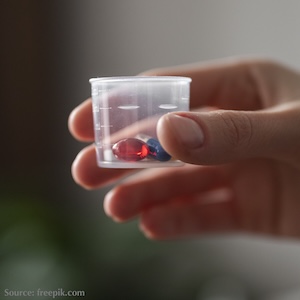Abstracts from the 29^ National Conference of the Italian Society for the Study of Hemostasis and Thrombosis, Bergamo, Italy | 23-25 October 2025
Vol. 4 No. s1 (2025)
CS06 | Patient specific iPSCs-derived sinusoidal endothelial cells for phenotypic correction of haemophilia A
A. Benetti1, C.M. Radu1, C. Samà1, M. Trevisan2, C. Simion1, E. Campello1, P. Simioni1 | 1Department of Medicine - DIMED, Padua University Hospital; 2Department of Molecular Medicine, University of Padua, Italy
Publisher's note
All claims expressed in this article are solely those of the authors and do not necessarily represent those of their affiliated organizations, or those of the publisher, the editors and the reviewers. Any product that may be evaluated in this article or claim that may be made by its manufacturer is not guaranteed or endorsed by the publisher.
All claims expressed in this article are solely those of the authors and do not necessarily represent those of their affiliated organizations, or those of the publisher, the editors and the reviewers. Any product that may be evaluated in this article or claim that may be made by its manufacturer is not guaranteed or endorsed by the publisher.
Published: 22 October 2025
441
Views
0
Downloads
Similar Articles
- Renato Marino, Silvia Linari, Marzia Leotta, Antonio Coppola, Chiara Biasoli, Maria Elisa Mancuso, Flora Peyvandi, Cristina Santoro, Ezio Zanon, Rita Carlotta Santoro, Diagnostic and management practices for inherited fibrinogen disorders: a nationwide survey of Italian Hemophilia Treatment Centers , Bleeding, Thrombosis and Vascular Biology: Vol. 4 No. 3 (2025)
- Silvia Linari, Renato Marino, Marzia Leotta, Antonio Coppola, Patrizia Di Gregorio, Augusto Bramante Federici, Flora Peyvandi, Cristina Santoro, Ezio Zanon, Rita Carlotta Santoro, The landscape of rare coagulation factor deficiency management in Italy: a national hemophilia center survey , Bleeding, Thrombosis and Vascular Biology: Vol. 4 No. 3 (2025)
- Giovanni Di Minno, Gaia Spadarella, Ilenia Lorenza Calcaterra, Giancarlo Castaman, Paolo Simioni, Raimondo De Cristofaro, Cristina Santoro, Flora Peyvandi, Matteo Di Minno, The evolving landscape of gene therapy for congenital severe hemophilia: a 2024 state of the art , Bleeding, Thrombosis and Vascular Biology: Vol. 3 No. 2 (2024)
- Guest Editor: Valerio De Stefano, 29th National Conference of the Italian Society for the Study of Hemostasis and Thrombosis, 2025 , Bleeding, Thrombosis and Vascular Biology: Vol. 4 No. s1 (2025)
- CO35 | Bleeding phenotype characterization in patients with congenital bleeding disorders: a multigenic approach using next generation sequencing to identify coagulation-modulating variants , Bleeding, Thrombosis and Vascular Biology: Vol. 4 No. s1 (2025)
- CO38 | Management of pregnancy, delivery, and postpartum in Italian carriers and women with hemophilia A and B , Bleeding, Thrombosis and Vascular Biology: Vol. 4 No. s1 (2025)
- PO02 | Pregnancy and delivery in women with hemophilia and carriers are still challenging: a ten years analysis from The Italian Association of Hemophilia Centers (AICE) , Bleeding, Thrombosis and Vascular Biology: Vol. 4 No. s1 (2025)
- CO37 | Assessment of clotting factor activity and sterility in thawed fresh frozen plasma supplied to helicopter emergency medical services for prehospital transfusion , Bleeding, Thrombosis and Vascular Biology: Vol. 4 No. s1 (2025)
- CO27 | Intracerebral hemorrhage in hemophilia A and B: a 10-year prospective multicenter study in Italy (2012–2022) , Bleeding, Thrombosis and Vascular Biology: Vol. 4 No. s1 (2025)
- CO34 | Evaluation of emicizumab concentration and thrombin generation in a cohort of severe hemophilia A patients with and without inhibitor , Bleeding, Thrombosis and Vascular Biology: Vol. 4 No. s1 (2025)
1-10 of 123
Next
You may also start an advanced similarity search for this article.










